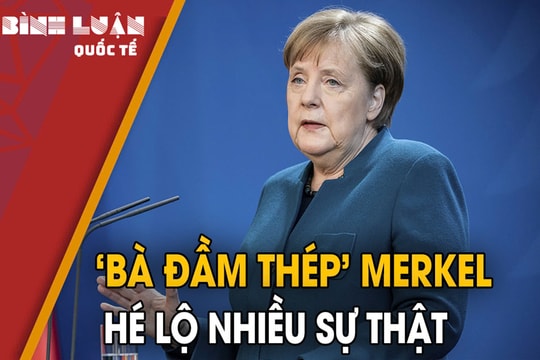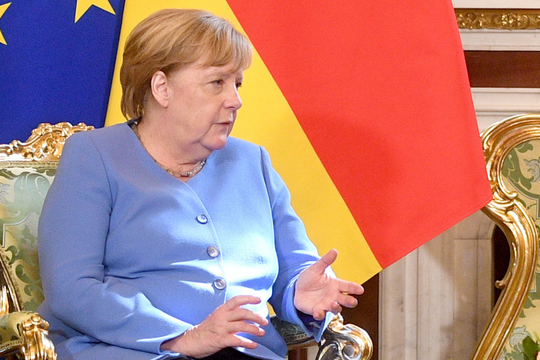The Merkel “era” is ending: Opportunity or challenge?
(Baonghean) - Angela Merkel will not continue to run for the position of German Chancellor after her term ends, as well as the Chairwoman of the CDU Party of the ruling coalition. This announcement is considered to mark the end of the "Merkel era" and open a new chapter not only for Germany but also for Europe. However, that future is very difficult to predict.
"Punishment" by the voters' votes
After nearly two decades as leader of the Christian Democratic Union (CDU), Chancellor Angela Merkel has decided to step down and not run for re-election as party chairwoman next December.
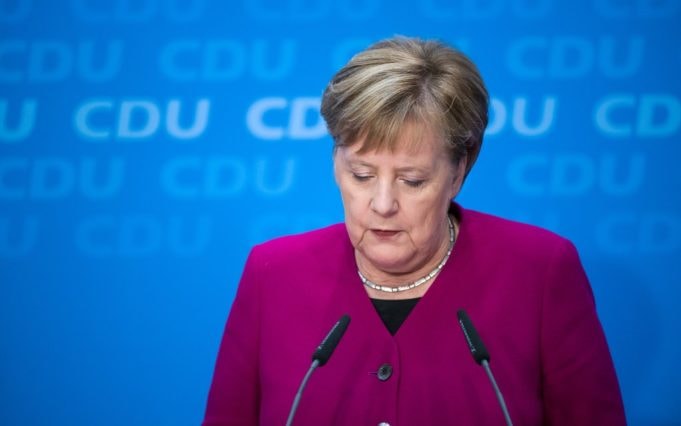 |
| German Chancellor Angela Merkel announced that she will not run for the next term as Chancellor. Photo: Reuters |
She also confirmed that this fourth term will be her last as German Chancellor. Mrs. Merkel's announcement late on the afternoon of October 29 surprised, even "shocked" many Germans who have been accustomed to the leadership of a "female commander" since 2005.
But for observers, this is an inevitable and forewarned ending for German politics and Chancellor Merkel personally.
The federal general election in September 2017 with the hard-fought victory of the Christian Democratic Union and the Christian Social Union (CDU/CSU) coalition, as well as the crisis in forming a new coalition government immediately after, was the starting point, signaling an uneven tenure for Ms. Merkel.
And this month’s local elections have “realized” those predictions. In mid-October, the Bavarian state election saw the CSU lose its absolute majority and suffer its worst result in more than half a century. Most recently, on October 28, both the CDU and the Social Democratic Party (SPD) also had very poor results in the state of Hessen.
These results are considered as “punishment” by the German voters for the ruling grand coalition. The reason is nothing other than the voters are not satisfied with the policies that the coalition government of the three parties including CDU, CSU and SPD has implemented on the whole federal scale, the most prominent of which is the refugee policy.
Since 2015, Chancellor Merkel’s “open door” policy of welcoming more than 1 million refugees has been heavily criticized. It is believed that this policy has damaged the fabric of German society, causing cultural and religious conflicts.
In addition, the federal government's "belt-tightening" policies for many years, even though Germany is one of the most financially powerful countries in Europe, and the government's delay in reforming the health insurance system are also reasons why many voters have turned their backs on Chancellor Merkel's government.
In such a context, the ruling coalition also showed discord when the two parties CSU and SPD said they were implicated because of their alliance with Merkel's CDU party. The SPD leader even spoke about the possibility of withdrawing from the coalition early next year.
Pressure from both within the coalition and outside society has left Chancellor Merkel with no other choice but to lay out a roadmap to gradually withdraw from politics.
This decision is considered timely, both to appease criticism from voters and opposition parties aimed at the ruling coalition, and to create a stepping stone for the transition process and finding a successor within the CDU party.
What lies ahead?
Chancellor Merkel personally sees her decision as an opportunity to “open a new chapter” for Germany. However, from now until she completely withdraws from the political stage, Ms. Merkel will have to “fight for her political survival.”
Although German law does not require the Chancellor to be the head of a political party, this is traditionally considered key to the success of any individual or party in leading the country.
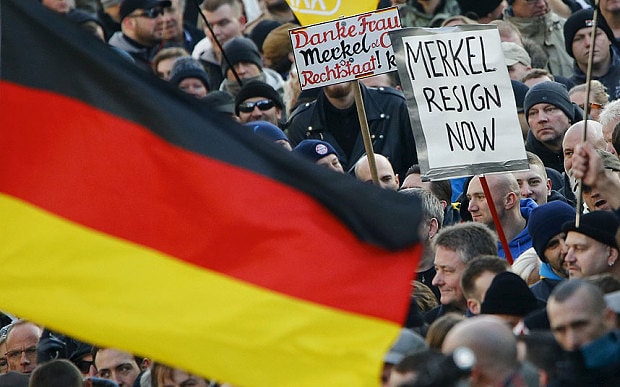 |
| Merkel's open-door refugee policy has caused division in German society. Photo: Getty |
If Ms. Merkel is no longer the leader of the CDU Party, her reputation and voice on government policies will be significantly reduced during her remaining term. Not to mention, if the current grand coalition falls apart, an early election will have to be held and Ms. Merkel may have to end her term as chancellor early.
Observers say the length of Merkel's final term depends on who replaces her as party leader in December. That person will almost certainly be the candidate the CDU nominates to prepare for the next election to choose Chancellor after Merkel's term ends.
If the CDU elects someone “close” to Ms. Merkel, such as party Secretary General Annegret Kramp-Karrenbauer or Economy Minister Peter Altmaier, Ms. Merkel will still control the CDU and remain Chancellor.
But if the next leader is an opposition figure within the party, the situation becomes more complicated and the possibility of an early election becomes more likely.
On a broader scale, public opinion is not only concerned about how long Ms. Merkel will stay in office, but also who will succeed her as Chancellor. The end of the “Merkel era”, considered a “symbol of stability”, will put Germany in a risky future, especially in the context of many complicated problems both domestically and internationally.
Domestically, immigration and economic growth are burdening German leaders. In foreign affairs, US President Donald Trump’s trade protectionism and divisions within the European Union are all challenges facing Germany as the “locomotive of the EU”.
Europe is insecure
Not only is German politics in turmoil, German Chancellor Angela Merkel's decision to leave politics has also made Europe worried. It must be affirmed that during more than 10 years as Chancellor of Germany - the largest economy in the European Union (EU), Ms. Merkel is considered the true leader of the EU.
She left important marks in economics and diplomacy, such as the way she handled the economic crisis in 2008-2009 or in hot international issues such as Iran's nuclear program, the Ukraine crisis, Syria... She is also a key factor in maintaining a unified and united stance across the EU.
The decision on Mrs. Merkel's "retirement" plan was made at a time when the EU is facing a series of challenges and uncertainties, most notably the bloc's cohesion is being threatened more than ever.
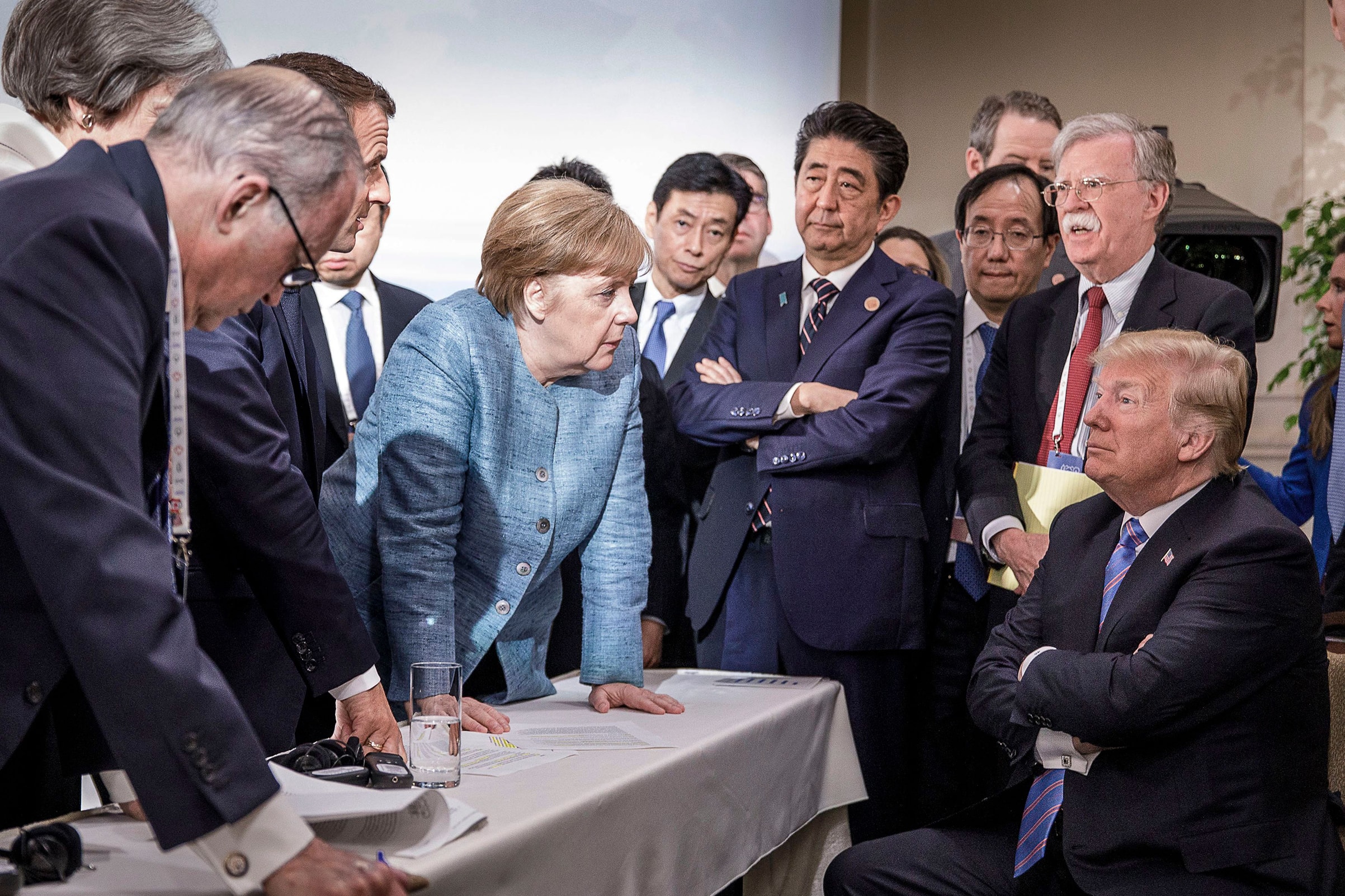 |
| Chancellor Angela Merkel has been number one on the list of the world's most powerful women for many years. Photo: EPA |
The departure of the UK (Brexit) and the rise of far-right populist parties are threatening the core values of the world's largest alliance. Even in Germany, populist parties are also emerging strongly, typically the Alternative for Germany (AfD).
The fledgling far-right party has won seats in the Bundestag for the first time and after the recent state elections, the AfD has seats in all 16 German state parliaments. With the current rise of the AfD, as well as many other far-right and populist parties in Europe, it will pose a threat to the traditional parties in the European Parliament elections in May 2019.
In such a context, Mrs. Merkel’s withdrawal from the political stage will be a real nightmare for Europe. If things are not controlled, the political division in Europe will become more and more complicated. Therefore, from now on, both the EU and Germany will probably have to get used to adapting to a new change ahead, the “post-Merkel” period./.

